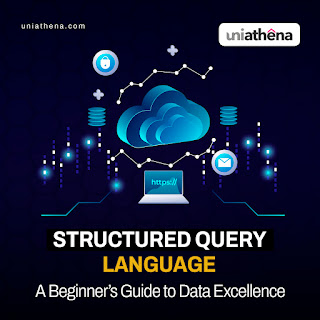Why SQL Skills Are the Core of Modern Business Intelligence
What does it take to make a business really data-driven? Well, it is not only about collecting information, but it is also about understanding, structuring, and transforming it into insights that lead to smarter decisions.
This is when SQL comes in. Being the language that drives nearly all databases, SQL enables professionals to operate data effectively, discover trends, and address complicated issues.
A Best SQL Certification Course can help you move above the entry-level knowledge to become skilled enough to work with databases and make data work on your side in the fast-paced digital age.
Exploring the Core SQL Command Categories
SQL commands are the foundation of database work. They are classified into a few groups, and each group addresses different aspects of data management.
1. Data Definition Language (DDL): Database structure is specified using the following commands: Create, Alter and Drop.
Consider DDL as the blueprint of an architect. It allows you to create new tables, alter existing ones, or delete structures altogether to make sure that the database is up-to-date.
2. Data Manipulation Language (DML): The commands to work with real data are Insert, Update and Delete. They keep the records precise and up-to-date of present-day business activities.
3. Data Control Language (DCL): Grant and Revoke commands can be used to control access privileges. DCL serves as the protector in a data breach-sensitive environment where only the authorized individuals can have access to the important data.
4. Transaction Control Language (TCL): TCL is managed by the following: Commit, Rollback, and Savepoint. These commands allow the administrators and developers to verify the changes and provide stability even with complex operations.
Key SQL Functions That Drive Insights
Besides basic commands, SQL has a large number of functions to promote data analysis and advanced manipulation. These are some of the functions that enable SQL to be more than a storage system that can be utilized to draw actionable insights.
1. Aggregate Functions: Aggregate functions include SUM, COUNT, AVG, MIN, and MAX, and they are used to summarize large data sets into meaningful summaries.
They are required to produce comprehensive reports, measure the required metrics, identify the trends across the datasets, and make informed decisions.
2. String Functions: CONCAT, SUBSTRING, REPLACE, and TRIM allow the text-based information to be managed precisely.
They can be useful to clean and format entries, bring different fields together, or isolate a certain piece of information, making textual data precise and structured to interpret.
3. Date and Time Functions: Date and Time functions like GETDATE, DATEADD, DATEDIFF, and FORMAT are used to monitor the performance over time.
With these features, organizations are able to quantify the timeframes of projects and calculate age or tenure, and make timeline-based research with accuracy.
4. Mathematical Functions: Functions such as ROUND, CEIL, FLOOR, ABS, and POWER enable complex calculations directly within SQL queries.
These minimize dependency on external software, simplify workflows, and enable analysts to come up with valid results to use in reporting, budgeting, or predictive modeling.
5. Window Functions: Advanced window functions, such as ROWNUMBER, RANK, DENSE_RANK, and PARTITION BY, provide the capability to perform calculations on subsets of data while maintaining row-level details.
They are especially helpful in ranking, comparing, and analyzing data chunks, allowing one to gain detailed information without losing the details.
Why UniAthena’s SQL Certification Stands Apart
This SQL Certification Course for Beginners is intended to suit learners who want an easy-to-understand and comprehensive program.
The course provides you with an understanding of databases, DBMS, and RDBMS. You will also learn about SQL constraints, joins, stored procedures, views, and indexes. Such an emphasis on theoretical and practical knowledge will be useful, where learners will have the opportunity to make use of SQL in real-life scenarios.
Bonus? Complete this short course in as little as 1-2 weeks of self-paced learning. Plus, when completed, get a chance to earn a Blockchain-verified certification to demonstrate your skills.
Take Charge of Your Data Journey
Today, where everything in business is driven by data, learning SQL is not only a plus, it is a must. Whether you are starting fresh or looking to polish your technical skills, the Best SQL certification course can change your career direction.
Take advantage of this opportunity and transform data into your most valuable business asset. Explore now




Comments
Post a Comment